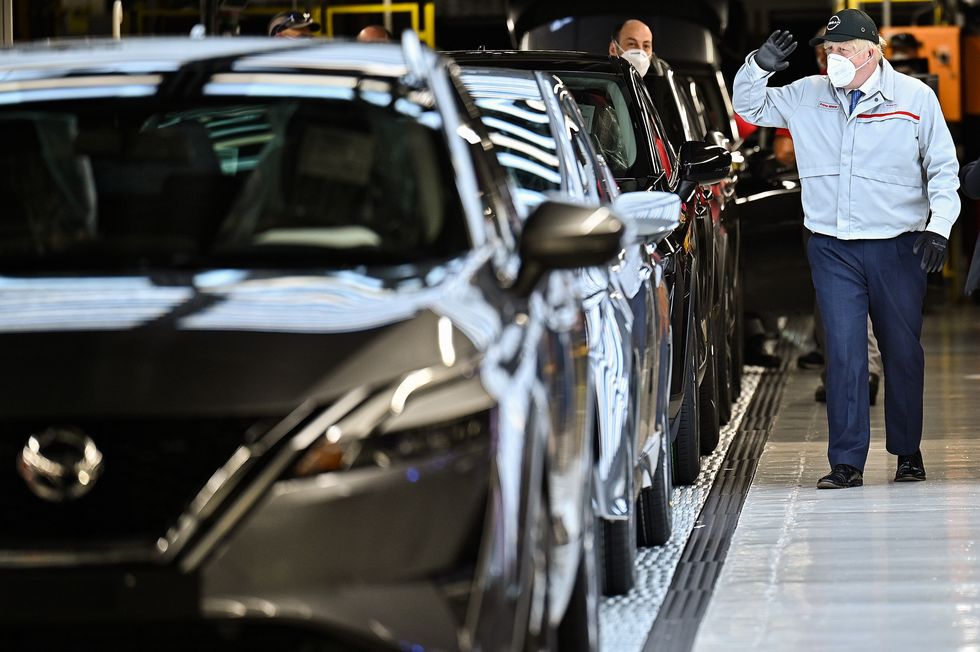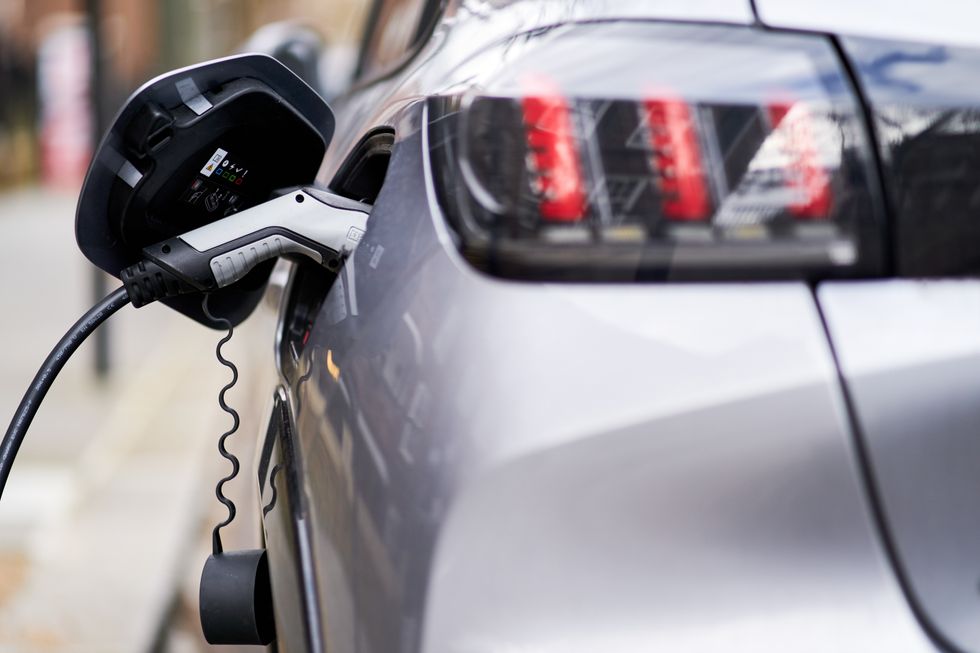
New petrol and diesel vehicle sales will be banned from 2030
PA
The ZEV mandate is set to be introduced next year with car brands facing heavy penalties for not manufacturing electric cars
Don't Miss
Most Read
Trending on GB News
According to reports, the Government could be looking into the possibility of “watering down” plans for the Zero Emission Vehicle mandate.
The so-called ZEV mandate would be introduced next year and require automotive manufacturers to have 22 per cent of its car sales be electric in 2024.
This total, as well as total electric van sales, would steadily increase every year until it reaches 80 per cent for cars in 2030 and finally 100 per cent in 2035.
However, there are fears that the Government and Rishi Sunak could walk back some pledges for the net zero targets.

Car manufacturers will need 100 per cent of its cars to be electric by 2035, according to the ZEV mandate
PA
The Department for Transport (DfT) is planning to put the ZEV mandate rules to a vote in Parliament, according to The i newspaper.
It is believed that this could potentially lead to rebels in Government voting against the proposal and leaving the mandate in limbo.
Recent research from New AutoMotive found that car manufacturers would have to pay around £660million if the ZEV mandate had been in place over the last 12 months.
Estimates show that car brands would be around 44,000 credits short of reaching 2024 targets.
Some brands which focus more heavily on electric cars like Tesla and MG would avoid any ZEV mandate compliance issues.
However, other brands, like Ford and Toyota, would be more likely to need to buy credits or pay to achieve EV manufacturing goals.
The Department for Transport reportedly refused to say whether it was committed to the start date of the ZEV mandate, adding that it would begin in “due course”.
According to policy documents released earlier this year, the ZEV mandate could have a cost benefit of £44billion, based on best estimates.
Speaking in March, Mike Hawes, chief executive of the SMMT, said: “We want regulation that gives consumers choice and affordability, and enables manufacturers to transition sustainably and competitively.”
He added that any undermining of electric vehicle development or net zero goals could hamper the ability of the car industry to secure investment.
A spokesperson for the DfT said: “We remain committed to phasing out the purchase of new petrol and diesel cars by 2030 – providing certainty to industry, safeguarding jobs and helping UK car manufacturers invest in the future.
“We continue to engage closely with industry on the transition, and will publish our response to the mandate consultation in due course.
LATEST DEVELOPMENTS:

New petrol and diesel vehicle sales will be banned from 2030
PA
“The Climate Change Act 2008 requires the Zero Emission Vehicle mandate to be approved by Parliament, for which an affirmative Statutory Instrument is the normal procedure.”








